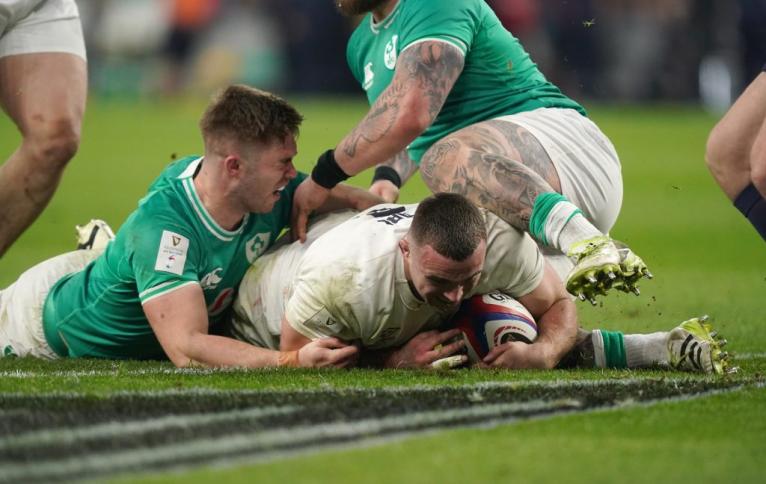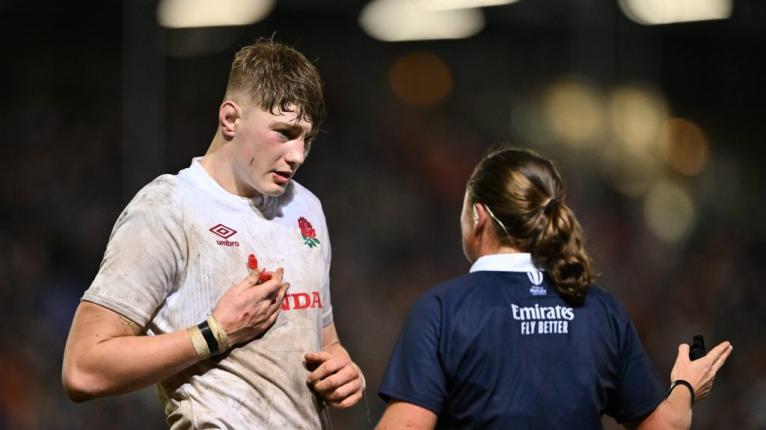You could have sworn Ireland lost its independence last Saturday rather than a game of rugby. Yes, their standards dipped, their lineout creaked, their captain had an off day, and their veteran scrum-half mistimed a kick in the dying moments.
Yet a one-point defeat away from home to a country who are one of just four to have won a World Cup is not a scandal. It hasn’t turned Andy Farrell into a bad coach, or Peter O’Mahony into a has-been. All it has done is remind us of how special the Six Nations is.
This was 2001, 2011 and 2017 in reverse as this time Ireland, rather than England, were the side ambushed.
And this is what happens routinely in this championship. Remember Clive Woodward’s side knocked on the Grand Slam door for four years before they finally got through it in 2003. Eddie O’Sullivan’s Ireland fell one game short four years out of five. In tournaments like this, mistakes occur, misfortune visits, upsets take place, margins are fine.

So, Ireland lost a game of rugby last Saturday, and with it the chance to become the first country in 26 years to win back-to-back Grand Slams. With that there is disappointment, for sure, and the grave, harsh reminder from their former fly-half-turned-sage, Ronan O’Gara, a great team is one that wins consistently on the world stage. “Irish rugby hasn’t yet done that,” O’Gara said truthfully.
Still, look at what it has been doing in the last couple of years. There was a series win in New Zealand, then last season’s Grand Slam.
And all isn’t lost in 2024. On Saturday Ireland can win a second successive championship, their fifth in 11 seasons. Remember, they have been competing in this competition since 1883. Prior to 2009, they had won just one Grand Slam and 10 championships. Now the honours board has four of the former, 14 of the latter. As a nation, we haven’t earned the right to turn our noses up at the chance to add another trophy to our resume.
It is not a Grand Slam the Irish rugby fan needs but a dose of perspective.
Nor should we forget something else. South Africa failed to go through the last two World Cups unbeaten. Yet they still ended both tournaments as champions.
What ultimately matters in sport is the name that engravers etch onto a trophy. And with this in mind, it is not a Grand Slam the Irish rugby fan needs but a dose of perspective.
As a sporting nation, we have won very little. No other country has as many wooden spoons while only one other Tier One nation (Italy) has failed to reach a World Cup semi-final.
So, let’s look at Saturday for what it was.

It was the 71st time Ireland travelled to London to face England since they first made that trip in 1875. To date, they have won there just 19 times. At one stage in this fixture, from 1988 to 2001, Ireland won just twice.
Remember too England have a rugby population eight times Ireland’s size, England have appeared in four World Cup finals (to Ireland’s none), winning 13 Grand Slams to Ireland’s four.
Their pack is bigger; their playing depth deeper.
The one thing they didn’t have going into Saturday’s game was form. Poor against Italy, fortunate against Wales, beaten by Scotland, they also had an indifferent World Cup, despite reaching the semi-final, where they finally produced a performance of note.
And it was only a matter of time before they did so again. On Saturday they were good; Ireland were not. They were also fortunate not to play with 14 players from the 24th minute onwards – Ellis Genge lucky to avoid a red card for a high tackle. Then there was Ireland’s misfortune to sustain injuries to Calvin Nash in the opening minutes, and then to Ciaran Frawley after the break, exposing the flip side of a coach selecting a six-two split on his bench.
We have failed to cope with losing even though there was a time when we did precious little else.
Yet the biggest lesson from Saturday is there are no certainties in Six Nations rugby. This is a competition where Ireland can whitewash Italy but lose to England, who lost to Scotland, who in turn, lost to the Azzurri.
This is a competition where a team can mature from 15 individuals into a collective unit overnight. England did precisely that on Saturday. Ireland stuttered and yet were still one well contested lineout and one smart clearance kick away from beating them.
What has happened since has been illuminating, Farrell speaking with maturity and calmness, reminding his followers and players Ireland need to learn how to be good losers rather than just good winners.
And yet publicly, as a nation, we really did get our Twickers in a twist after the final whistle.
We have failed to cope with losing even though there was a time when we did precious little else.
That’s a sign of where Irish rugby is right now, where a Triple Crown is no longer part of the rugby lexicon, because we have bigger fish to fry.
And the truth is we now have a system which more or less guarantees Irish rugby will be in the world’s top five, and Europe’s top three, for the next five years. Scotland don’t, their number of clubs being too small. Wales are entering freefall.
That leaves France, who – in Bernard Jackman’s words – are playing with a ‘broken heart’ after World Cup failure has been compounded by an average Six Nations. Yet they, like England, are producing gargantuan Under-20 players and while Ireland continue to get extraordinarily good results at that level, there remains a fear rival countries are producing genetically more gifted athletes.
The answer to this lies within.

In Ireland, two avenues exist to the national side, via the schools route or the clubs. Right now, the club avenue is more like a side street, the schools a highway. And so long as the fee-paying schools of south Dublin are willing to continue investing in rugby programmes then this lopsided system will continue.
But if the IRFU can use structural creativity and present clubs with a pathway free of potholes then the playing pool can deepen. Do that and Ireland won’t just remain Six Nations heavyweights for five years but for ten, possibly even more.
Along the way the odd defeat – such as Saturday’s – will occur, serving to remind us a Grand Slam is never won in 80 minutes but can always be lost in that slim timeframe.
But there is a big difference between a bad day and a bad team. Ireland lost. England, and the Six Nations, won. That’s why this tournament is so special. It still springs a surprise. We suspect it always will.



Comments
Join free and tell us what you really think!
Sign up for free